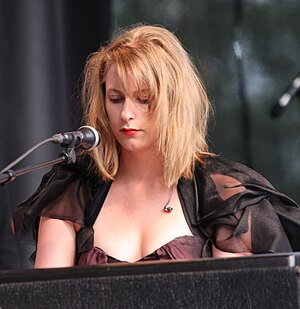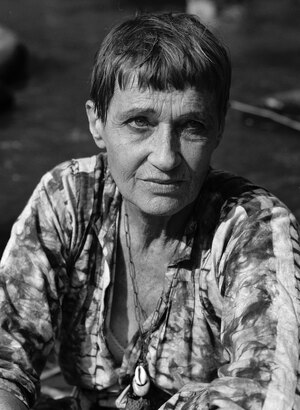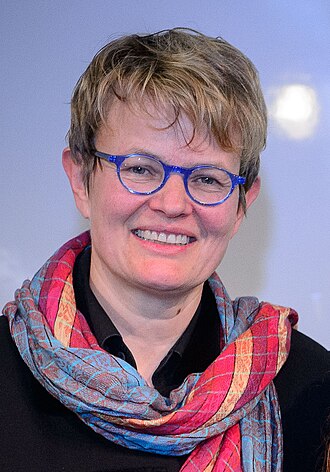Discover Your Roots
SIGN UPDiscover Your Roots
SIGN UPSusanne is a female name of American origin that means Lily Flower. It is a German and Scandinavian variant of the name Susanna. Notable individuals with this name include Susanne Antonetta, an American poet and author, Susanne Bier, a Danish film producer, director, and writer, and Susanne Klatten, a German heiress. The name Susanne is associated with qualities of elegance and purity due to its meaning of "Lily Flower." It has been popular in various fields such as arts, politics, and sports, with bearers making significant contributions in their respective domains. If you are considering the name Susanne for your child, it carries a timeless and graceful essence, symbolizing the beauty and resilience of the lily flower.

Susanne Benton, born Hildur on February 3, 1948, is a retired Canadian actress recognized for her roles as General Dreedle's WAC in Catch-22 (1970) and Quilla June Holmes in A Boy and His Dog (1975). Born in Toronto, Ontario, Canada, Benton was raised by her father, a jazz pianist, after her mother left the family when she was two years old. Despite facing personal challenges, she pursued her dream of becoming a major star from a young age. Benton gained attention for her refusal to disrobe for early roles, but later posed nude for Playboy magazine in May 1970. She married James Benton in 1966, and after their divorce, she married David Rudich. Her filmography includes appearances in The Virginian, Jigsaw, Catch-22, and The Last Horror Film, among others. Benton's dedication to her craft and her journey as an actress have left a lasting mark in the entertainment industry.Keywords: Susanne Benton, Canadian actress, Catch-22, A Boy and His Dog, Playboy, filmography

Susanne Zenor, born on November 26, 1946, is a retired American actress, best recognized for portraying "Margo Anderman Horton" on the popular soap opera Days of Our Lives. Originally named Sue Zan Zenor, she commenced her acting journey at the Actors Theatre of Louisville. Zenor's notable film appearances include The Moonshine War (1970), Play It Again, Sam (1972), and The Baby (1973). During the 1970s, she made several guest appearances on television shows such as McMillan & Wife, Love, American Style, M*A*S*H, The Six Million Dollar Man, and Barnaby Jones. In 1977, Zenor began her portrayal of Margo Anderman Horton on Days of Our Lives, which continued until 1980. Notably, she was married to her Days of Our Lives co-star Edward Mallory until his passing in 2007. Zenor's versatile acting career and memorable performances have left an indelible mark on the entertainment industry.[Word count: 146]

Susanne Aartun Sundfør, born on March 19, 1986, is a highly acclaimed Norwegian singer-songwriter and record producer. Raised in Haugesund, Sundfør's musical journey began when she started touring in 2005 and subsequently released her self-titled debut studio album, which reached number three on the Norwegian album chart. Her second studio album, "The Brothel," marked a significant shift towards a more ambitious and electronic sound, receiving critical acclaim and becoming the best-selling album of the year in Norway. Sundfør's international breakthrough came with her fourth studio album, "Ten Love Songs," showcasing her experimentation with electronic dance pop, eventually reaching number one and receiving universal acclaim. Her fifth studio album, "Music for People in Trouble," further demonstrated her versatility by delving into folk singer-songwriter roots and also achieved the top spot in Norway. Sundfør's impressive career continued with her sixth album, "Blómi," released in 2023. Beyond her musical accomplishments, Sundfør is also the granddaughter of theologian and linguist Kjell Aartun and has studied English and art at the University of Bergen. Her contributions to the music industry have solidified her status as a revered figure in the Norwegian music scene and beyond.

Susanne Wenger MFR, also known as Adunni Olorisha (4 July 1915 – 12 January 2009), was an Austrian-Nigerian artist and Yoruba priestess renowned for her dedication to preserving and promoting Yoruba culture. Born in Graz, Austria, Wenger initially pursued studies in applied arts and later expanded her artistic skills in Vienna. Following her marriage to linguist Ulli Beier, the couple relocated to Nigeria, where Wenger's encounter with the Yoruba religion deeply influenced her spiritual and artistic journey.Settling in Osogbo, Nigeria, Wenger immersed herself in the Yoruba tradition, eventually becoming a leading advocate for the preservation of the Osun Osogbo Sacred Grove. Her collaboration with local artists led to the redevelopment and decoration of the grove with sculptures and carvings, earning it national monument status and later recognition as a world heritage site. Wenger's sculptural works in the Osun Grove, also known as New Sacred Art, reflect the activities and functions of the orishas, depicting the rich social life of traditional Yoruba adherents.Throughout her life, Susanne Wenger made significant contributions to the revitalization of Yoruba religious practices and the preservation of cultural heritage, leaving a lasting legacy as a guardian of the Sacred Grove and a pioneer of New Sacred Art in Osun, Nigeria.

Susanne Baer, FBA, is a prominent German legal scholar and a judge of the Federal Constitutional Court of Germany. Born on February 16, 1964, in Saarbrücken, Baer has made significant contributions to the field of public law and gender studies. She has held various academic positions, including the William W. Cook Global Law Professor at the University of Michigan Law School and a professor of public law and gender studies at Humboldt University of Berlin. Baer's extensive career includes serving as a visiting professor at several universities and holding leadership roles at Humboldt University. Notably, she became a judge of the Federal Constitutional Court of Germany in 2011, making history as the first lesbian to serve on the court. Baer has been involved in impactful judicial decisions, including addressing inheritance tax laws and overturning a ban on wearing hijabs in German classrooms. Her areas of research encompass socio-cultural legal studies, gender studies, law against discrimination, and comparative constitutional law. Baer's remarkable contributions have been recognized through numerous awards and honors, solidifying her status as an influential figure in the legal and academic spheres.
All images displayed on this page are sourced from Wikipedia or Wikimedia Commons.We use these images under their respective Creative Commons or public domain licenses. Wherever applicable, author attributions and license information are provided. If you believe an image is used incorrectly or outside its license terms, please contact us so that we can review and correct the issue.